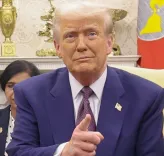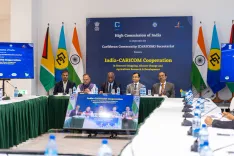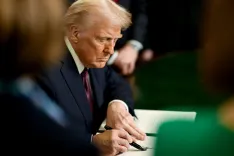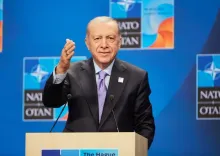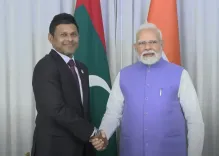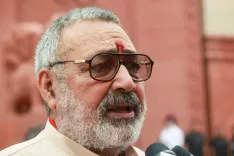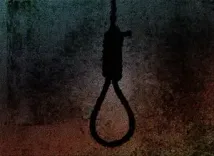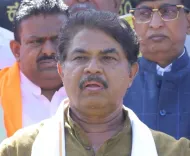How Are Italian Leaders Highlighting the Strategic Role of IMEC with India?
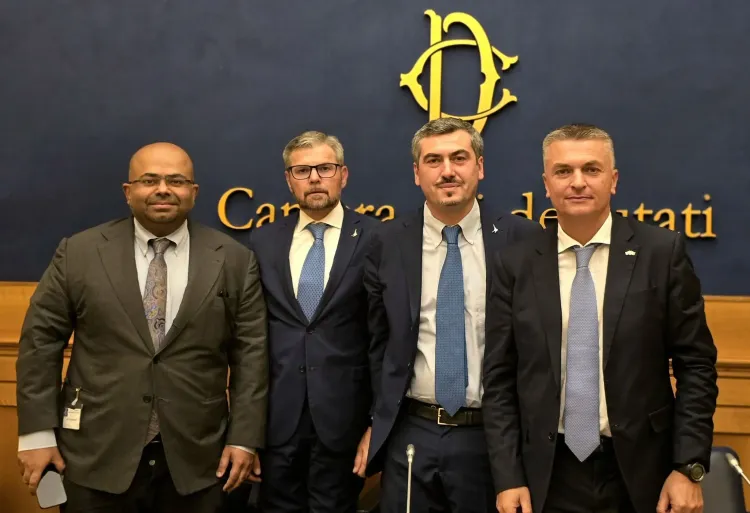
Synopsis
Key Takeaways
- Italy aims to be the Mediterranean hub of the IMEC.
- IMEC offers a strategic opportunity for enhanced trade.
- Collaboration with India is crucial for achieving stability.
- The port of Trieste is a key logistical node.
- Trust is essential for successful trade relations.
Rome, July 25 (NationPress) Italy is strategically positioning itself as a pivotal player in the emerging India-Middle East-Europe Economic Corridor (IMEC). Senior officials from Prime Minister Giorgia Meloni's administration have emphasized the nation's critical role in linking Europe with India and the Persian Gulf through enhanced trade infrastructure and diplomatic relations.
During an event organized by the Foreign Affairs Department of the Lega (League) at the Montecitorio Press Room of the Italian Parliament, Deputy Minister for Infrastructure and Transport Edoardo Rixi highlighted Italy's commitment to establishing itself as the Mediterranean hub of IMEC.
"We are navigating an era of significant geopolitical shifts that are challenging the stability of global trade routes. In this context, Italy is prepared to contribute," Rixi stated.
He added, "IMEC represents a strategic opportunity to strengthen connectivity among Europe, the Persian Gulf, and India. Our nation, due to its geographical location and infrastructure investments, can emerge as the logistical center of the Mediterranean."
Rixi pointed out Italy's growing collaboration with India, asserting that IMEC is "a more cooperative trade route, developed alongside like-minded nations — in contrast to certain initiatives like the Belt and Road Initiative, which often positions participants in a more passive role."
The conference, titled 'IMEC: A Path for Peace and Stability in the Middle East,' was led by League MP Paolo Formentini, Vice President of the Parliamentary Committee on Foreign Affairs and Head of the League's Foreign Affairs Department.
Formentini expressed his strong belief that the Corridor offers a strategic opportunity to foster peace, economic collaboration, and long-lasting stability in the region, asserting, "It is essential to invest in IMEC through both diplomatic initiatives and national infrastructure development, beginning with the port of Trieste."
Senator Marco Dreosto, who represents Friuli Venezia Giulia in the Italian Senate, reflected on his early involvement with India regarding this matter.
"I was the first Italian senator to visit India to discuss Trieste and our production system, at a time when very few were engaged in such discussions," he recalled, referencing his participation in the inaugural Sagarmatha Dialogues. "Trieste has a historical legacy in global trade — from the Lloyd Triestino line that connected Italy to Bombay to Baron Revoltella, one of the key financiers of the Suez Canal."
Dreosto emphasized that Trieste and the broader Friuli Venezia Giulia region could act as a vital IMEC node, linking the Mediterranean to Northern and Eastern Europe.
Vas Shenoy, founder of the Indo-Mediterranean Initiative and Chief Representative for Italy of the Indian Chamber of Commerce, also spoke at the event.
"The Indo-Mediterranean region is the cradle of humanity and all major religions — Hinduism, Islam, Christianity, and Judaism," he stated. "For trade to flourish, trust is paramount. Italy and India embody that trust."
Shenoy advocated for the establishment of a dedicated India–Italy maritime corridor, pointing out that Italian ports such as Trieste, Genoa, and southern gateways could serve as strategic entry points for Indian trade into Europe and Africa.
"The India–Italy relationship is ancient, tracing back to Roman times. It can now play a crucial role in anchoring peace and stability in the Indo-Mediterranean region during these tumultuous times," he concluded.

